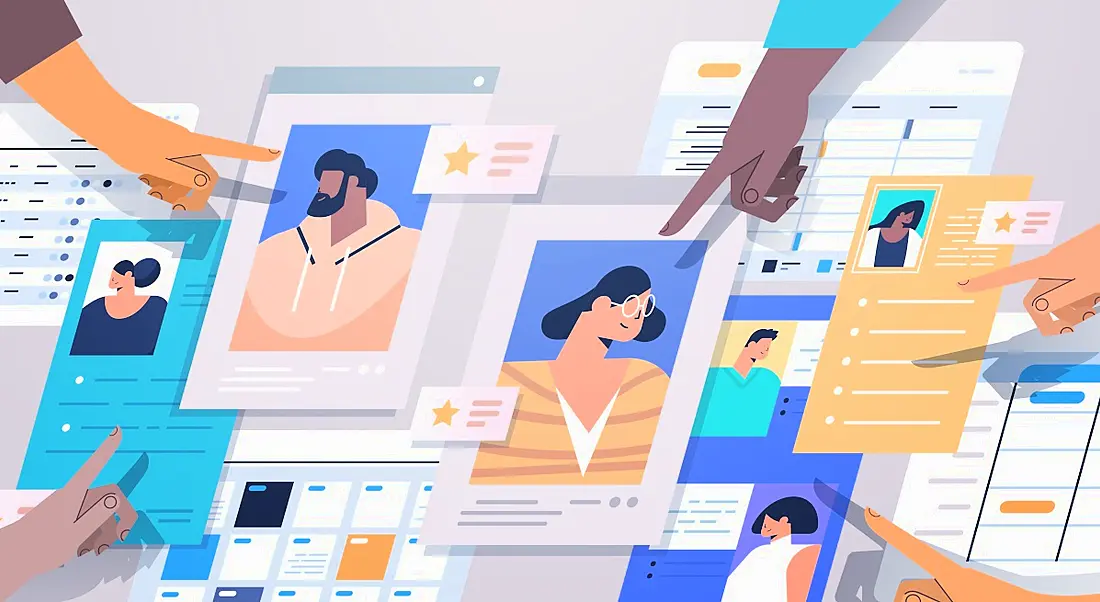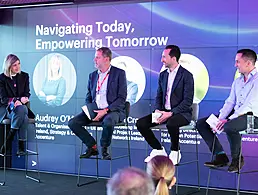Generative AI has significant potential to change the recruitment industry, but will that be for better or for worse? Or is it too soon to say?
AI technology has made its way into most aspects of our lives now to the extent that we wouldn’t know where we would be without it. Recruitment is no different. It’s fair to say that much of the recent hype around generative AI developments has focused a lot on productivity and how the likes of ChatGPT and Google Bard can make people work smarter, not harder.
Fans of AI believe the new tools we are seeing emerge are a major asset for workplace productivity; they say AI is changing the way we all work for the better. AI naysayers believe that AI could become so advanced it negates the need for human workers. Obviously, that’s a very simplified summary of the situation, which we have explored at length in previous pieces with contributors who understand that the issue is more nuanced than the media often depicts it.
AI in recruitment is not new
An aspect of generative AI that we have not explored so much yet is its potential to change the recruitment industry. In fact, there are already things happening in that space, which we will look at in a moment. First, though, it’s important to clarify that AI in recruitment is not new. Companies have been using AI tools to sort through résumés for years, with varying results. Those who are wary of using generative AI in recruitment may point out that AI has in the past let recruiters and jobseekers alike down massively. There are quite a few cases of poorly built algorithms discriminating against applicants who are from minority backgrounds – a knock-on effect of the lack of those people working on the development of AI tools.
Thankfully societal knowledge of AI ethics and the importance of a wider talent pool being included in the development side means things are looking potentially brighter for the future. But how will the recent surge of generative AI activity in the recruitment sector affect that progress?
Throwing generative AI into the mix
The short answer is it might be too soon to tell. But companies are already bringing generative AI into recruitment efforts – such as when German software giant SAP announced in May that it was ramping up its collaboration with Microsoft to work on “joint generative AI offerings to help customers address the talent gap”.
This involved integrating SAP SuccessFactors with Microsoft 365 Copilot and Copilot in Viva Learning, as well as Microsoft’s Azure OpenAI service. “The integrations will enable new experiences designed to improve how organisations attract, retain and skill their people,” SAP’s statement said. It gave generating interview questions and updating requirements on job specs as examples of areas where the tech might be able to help employers streamline their hiring processes.
Of course, it’s not just HR departments that are using generative AI to streamline recruitment. On the other side of the house, a lot of jobseekers are fully embracing AI tools to help them find jobs and write their résumés. A July poll by UK-based jobseeker search engine platform Adzuna found that workers in the IT sector are the most likely to lean on generative AI to prepare for interviews, with Gen Z, healthcare and social workers also relying quite heavily on the tech.
A democratising influence?
The poll was commissioned by Adzuna to check the usage of its newly released job interview preparation tech tool called Prepper – which means its results are possibly biased in favour of the tool. However, despite the poll functioning as market research, it did yield some insight into the type of jobseeker who uses such tools. Out of those in the IT sector using Prepper, software engineers, product managers, software developers, data analysts and data scientists featured in the top 20 users. Prepper works by generating interview questions based on a candidate’s needs so they can get their interview practice in before the real deal.
Interestingly, it’s not just tech workers who are using this AI interview prep tech; care assistants, accountants, warehouse operatives, teaching assistants and hospital porters also rely on the tool for interviews, according to Adzuna. Could generative AI actually be a democratising influence on the recruitment and jobseeking process? If it helps people from diverse sectors besides tech prepare for and find career opportunities then it may be a good thing. The fact that LinkedIn, a professional networking site used by people from all sectors has introduced generative AI tech to help users improve their profiles means that more and more people will be exposed to the idea of using generative AI to boost their career prospects.
10 things you need to know direct to your inbox every weekday. Sign up for the Daily Brief, Silicon Republic’s digest of essential sci-tech news.




